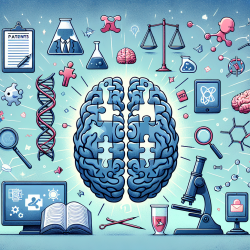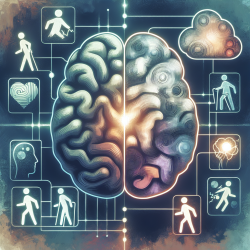Enhancing Pre-School Teachers' Skills in Identifying Autism Spectrum Disorder (ASD)
In recent years, the importance of early identification and intervention for Autism Spectrum Disorder (ASD) has become increasingly recognized. A significant portion of this responsibility falls on pre-school teachers, who are often the first to observe developmental anomalies in children. According to the research article "Pre-School Teachers’ Knowledge, Belief, Identification Skills, and Self-Efficacy in Identifying Autism Spectrum Disorder (ASD): A Conceptual Framework to Identify Children with ASD," enhancing teachers' skills and knowledge in this area is crucial for early diagnosis and intervention.
Key Findings from the Research
The research highlights four critical components that pre-school teachers need to improve upon to effectively identify and refer children with ASD:
- Knowledge: Teachers need a thorough understanding of ASD, including its symptoms, causes, and treatment options.
- Belief: Teachers' beliefs about ASD can significantly impact their ability to identify and refer children. These beliefs are influenced by cultural, religious, and personal factors.
- Identification Skills: Teachers must develop skills in observing, recording, and reporting children's behavior to identify potential ASD symptoms.
- Self-Efficacy: Teachers need confidence in their ability to identify and refer children with ASD. This confidence is often bolstered by knowledge and experience.
Implementing the Research Findings
To improve pre-school teachers' ability to identify and refer children with ASD, schools and educational institutions should consider the following steps:
1. Provide Comprehensive Training
Develop training modules that cover the basics of ASD, including its symptoms, causes, and treatment options. Training should also address common misconceptions and cultural beliefs about ASD.
2. Enhance Observation and Reporting Skills
Teachers should be trained in systematic observation and recording techniques. They should learn how to document children's behavior accurately and use this information to identify potential ASD symptoms.
3. Boost Self-Efficacy
Provide opportunities for teachers to practice their skills in a supportive environment. Encourage collaboration with specialists and parents to build confidence in their ability to identify and refer children with ASD.
4. Address Beliefs and Misconceptions
Conduct workshops and discussions that address cultural, religious, and personal beliefs about ASD. Providing accurate information and debunking myths can help teachers develop a more objective view of the disorder.
Encouraging Further Research
While the research provides a solid foundation, further studies are needed to explore additional factors that may influence teachers' ability to identify and refer children with ASD. Practitioners are encouraged to engage in continuous learning and research to stay updated on the latest developments in ASD identification and intervention.
To read the original research paper, please follow this link: Pre-School Teachers’ Knowledge, Belief, Identification Skills, and Self-Efficacy in Identifying Autism Spectrum Disorder (ASD): A Conceptual Framework to Identify Children with ASD.










